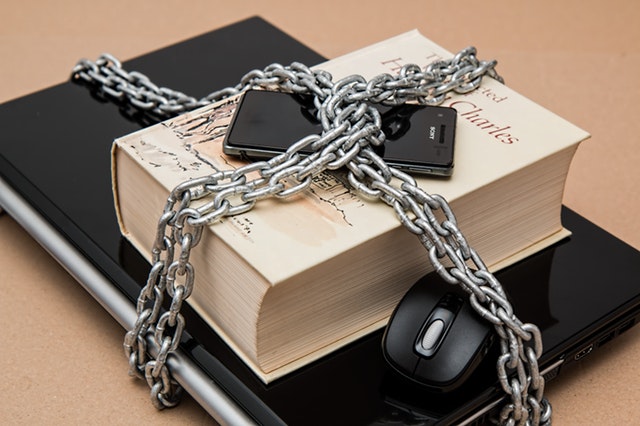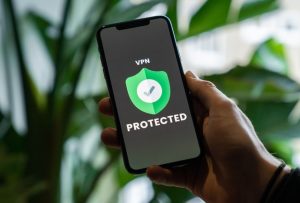In today’s digital world, strong authentication is essential for protecting your data and digital assets. Cyber threats are on the rise, making it more important than ever to ensure your business’s security. To do this, strong authentication is a must. In this blog post, we’ll explore three reasons why strong authentication is vital to your security.
First of all, phishing emails are responsible for more than 90% of successful cyber-attacks. To protect yourself from these attacks, you should Use strong passwords and ideally a password manager to generate and store unique passwords for each account you have online. Additionally, encrypting important information can help keep it secure from malicious actors who may be trying to access it without authorization.
Second, having a cybersecurity strategy in place can help protect businesses from cyber crime by backing up their data securely and ensuring that their devices and networks are secure as well as encrypted when necessary. Multi-factor authentication (MFA) is also an important part of any cybersecurity strategy as it adds an extra layer of protection against unauthorized access attempts by requiring users to provide additional verification beyond just a username and password combination before they can gain access to sensitive information or accounts online.
Finally, Microsoft has recently released Cyber Signals which provides organizations with threat intelligence briefs informed by the latest Microsoft threat data and research so that they can take actionable steps towards preventing malware infections or responding if they have already been infected with malware in order to reduce the risk posed by cyber criminals targeting them or their customers’ sensitive data online.
In conclusion, strong authentication is essential for protecting your business’s security in today’s digital world where cyber threats are on the rise. By using strong passwords along with encryption techniques when necessary; implementing multi-factor authentication; having a comprehensive cybersecurity strategy; and staying informed about the latest threat intelligence through services like Cyber Signals; businesses can better protect themselves against malicious actors looking to exploit vulnerabilities in their systems or steal sensitive information from them or their customers online
1. Prevents Unauthorized Access
Strong authentication is an essential part of any security system. It helps protect against unauthorized access to your data and digital assets by requiring users to provide two pieces of information in order to gain access. Two-factor authentication (2FA) is the most common form of strong authentication, which requires users to provide two pieces of information such as a username and password, or a PIN code and biometric scan. This makes it much more difficult for malicious actors to gain access to your data.
MFA (Multi-Factor Authentication) adds an extra layer of security on top of 2FA by requiring Users to identify themselves with more than just a username and password. This can include using biometrics such as fingerprints or facial recognition, or using physical tokens like keycards or USB drives that generate one-time passwords when inserted into the computer. MFA provides significantly better protection against unauthorized access than just using a username and password alone, according to research from …
Using MFA also has other benefits beyond preventing unauthorized access. For example, it can help reduce the risk associated with phishing attacks since attackers won’t be able to use stolen credentials if they don’t have the second factor required for authentication. Additionally, MFA can help organizations comply with industry regulations that require Strong authentication measures for certain types of data or transactions.
Overall, strong authentication measures are vital for protecting your systems and data from unauthorized individuals who may try to gain access without permission. By implementing 2FA or MFA solutions in your organization you can ensure that only authorized individuals are able to gain access while also reducing the risk associated with phishing attacks and helping you meet industry compliance requirements.
2. Aids in Compliance with Regulatory Requirements
Strong authentication is a vital component of any security system, and it is especially important for businesses that must comply with regulatory requirements. The Payment Card Industry Data Security Standard (PCI DSS) is one such regulation, and it requires companies to implement strong authentication measures in order to protect customer data. PCI DSS 12 requirements are a set of security controls that businesses must adhere to in order to protect credit card data and remain compliant with the Payment Card Industry standards. These requirements are designed to support organizations in developing an effective information security system and protecting stored cardholder data from malicious actors. The twelve PCI DSS compliance requirements include installing and maintaining a firewall configuration, not using vendor-supplied defaults for system passwords or other security parameters, encrypting transmission of cardholder data across open public networks, regularly monitoring access to network resources and tracking user activities on the network, among others. By implementing strong authentication measures as part of their overall security strategy, companies can ensure they are compliant with these regulations while also protecting their customer’s sensitive information from potential threats.
3. Protects Your Business Reputation
A data breach can have serious repercussions on a business’s Reputation and financial bottom line. When confidential or protected data is accessed or disclosed without authorization, it can lead to revenue loss, damage to brand reputation, loss of intellectual property, hidden costs and online vandalism. To protect your business from such an attack, it is essential to implement strong authentication measures. This includes assembling a team of experts such as forensics specialists, legal advisors and public relations professionals who can conduct a comprehensive breach response. Additionally, customers must be reassured that their personal data is safe with your company; otherwise they may take their business elsewhere. By taking the necessary steps to protect your organization from cyberattacks through strong authentication measures you can minimize the risk of reputational damage and financial losses due to a data breach.
Conclusion
In conclusion, strong Authentication is an essential security measure for any organization. It helps protect data and digital assets from unauthorized access, aids in compliance with regulatory requirements, and protects the business reputation. By implementing strong authentication measures, organizations can ensure that only the right users and devices have access to their networks. Additionally, strong authentication helps organizations enforce policies and guidelines to mitigate risk and protect their systems from malicious actors. Finally, it is important to remember that passwords alone are not enough; organizations must use a combination of methods such as two-factor or multi-factor authentication for maximum security. With these measures in place, businesses can rest assured that their data is secure and they are compliant with all applicable regulations.




Be First to Comment